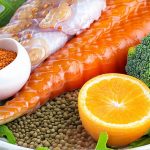Pelvic inflammation is a complex issue affecting millions globally, often manifesting as chronic pain, digestive issues, reproductive health concerns, or bladder dysfunction. It’s rarely discussed openly but significantly impacts quality of life for those experiencing it. Understanding the potential role diet plays in both triggering and mitigating pelvic inflammation is becoming increasingly important, as lifestyle interventions offer a proactive approach to managing symptoms and supporting overall wellbeing. This article explores the intricate connection between dietary choices and pelvic health, aiming to provide a comprehensive overview of current understandings.
The pelvis houses vital organs and structures including reproductive organs, bowel, bladder, and major nerve pathways. Inflammation within this region can stem from various sources – infections, autoimmune conditions, injury, or even chronic stress. However, emerging research highlights the significant influence of diet on modulating inflammatory responses throughout the body, including the pelvic region. Dietary patterns rich in pro-inflammatory foods can exacerbate symptoms while anti-inflammatory diets may help reduce discomfort and improve overall pelvic health.
Understanding Pelvic Inflammation
Pelvic inflammation isn’t a single diagnosis but rather a symptom that arises from diverse underlying conditions. These include endometriosis, interstitial cystitis (painful bladder syndrome), inflammatory bowel disease (IBD), pelvic inflammatory disease (PID) often linked to sexually transmitted infections, and chronic pelvic pain syndromes. The common thread is an exaggerated immune response within the pelvic area, causing pain, pressure, bloating, and other debilitating symptoms. Identifying the root cause of inflammation is crucial for effective management, but dietary adjustments can play a supportive role regardless of the specific condition.
Dietary Influences on Inflammation
The foods we consume profoundly impact our body’s inflammatory state. A diet high in processed foods, refined sugars, saturated and trans fats, and artificial additives generally promotes systemic inflammation. Conversely, diets abundant in whole, unprocessed foods – fruits, vegetables, lean proteins, healthy fats, and fiber – tend to have anti-inflammatory effects. This is because certain nutrients possess inherent anti-inflammatory properties or help regulate the immune system’s response. The gut microbiome, heavily influenced by diet, also plays a significant role in modulating inflammation levels.
The Role of Gut Health
A strong connection exists between gut health and pelvic inflammation. A compromised gut barrier (“leaky gut”) allows undigested food particles and toxins to enter the bloodstream, triggering an immune response that can contribute to systemic inflammation and potentially exacerbate pelvic symptoms. Dietary fiber from fruits, vegetables, and whole grains nourishes beneficial gut bacteria, strengthening the gut barrier and reducing inflammation. Probiotic-rich foods like yogurt, kefir, sauerkraut, and kimchi further enhance gut microbial diversity and promote a balanced microbiome. Avoiding food sensitivities is also crucial; identifying and eliminating trigger foods can reduce intestinal permeability and subsequent inflammatory responses.
Foods to Limit or Avoid
Certain dietary components are strongly associated with increased inflammation and should be limited or avoided if possible. These include refined sugars (found in processed foods, sugary drinks, and desserts), excessive amounts of red meat and processed meats, trans fats (often found in fried foods and baked goods), artificial sweeteners, and highly processed foods containing numerous additives and preservatives. Excessive alcohol consumption can also contribute to inflammation and disrupt gut health. While complete elimination isn’t always necessary or feasible, mindful reduction of these foods can significantly impact inflammatory levels.
Incorporating Anti-Inflammatory Foods
Building a diet centered around anti-inflammatory foods is a proactive step toward managing pelvic inflammation. Key players include omega-3 fatty acids (found in fatty fish like salmon, mackerel, and sardines; flaxseeds; and chia seeds), colorful fruits and vegetables rich in antioxidants (berries, leafy greens, bell peppers), healthy fats from avocados, olive oil, and nuts, turmeric containing curcumin (a potent anti-inflammatory compound), ginger, and green tea. These foods help neutralize free radicals, support immune function, and reduce inflammatory markers within the body. A Mediterranean-style diet, emphasizing these components, is often recommended for its overall health benefits and anti-inflammatory properties.
Ultimately, dietary adjustments should be viewed as part of a holistic approach to pelvic health management. While food can play a significant role in modulating inflammation and alleviating symptoms, it’s crucial to work with healthcare professionals to identify the underlying cause of pelvic inflammation and develop a personalized treatment plan that may include medical interventions alongside lifestyle modifications. Individual responses to dietary changes vary greatly; what works for one person may not work for another. Paying attention to your body’s signals and adjusting your diet accordingly is essential. Focusing on whole, unprocessed foods, supporting gut health, and minimizing pro-inflammatory components can contribute to improved wellbeing and a more comfortable experience with pelvic health.





















